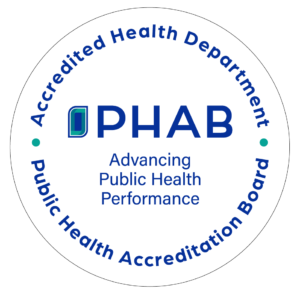For more than 40 years, the American Cancer Society has hosted the Great American Smokeout on the third Thursday of November. The Great American Smokeout is an opportunity for smokers to commit to healthy, smoke -free lives – not just for a day, but year round. The Great American Smokeout provides an opportunity for individuals, community groups, businesses, health care providers, and others to encourage people to use the date to make a plan to quit, or plan in advance and initiate a smoking cessation plan on the day of the event . The Great American Smokeout event challenges people to stop smoking and helps people learn about the many tools they can use to help them quit and stay quit.
Nearly 38 million Americans still smoke cigarettes, and smoking remains the single largest preventable cause of death and illness in the world. Smoking causes more than 480,000 deaths every year, or about 1 in 5 deaths. And more than 16 million Americans live with a smoking-related disease. While the cigarette smoking rate has dropped significantly, from 42% in 1965 to less than 15.5% in 2016, the gains have been inconsistent. Some groups of Americans suffer disproportionately from smoking-related cancer and other diseases, including those who have less education, who live below the poverty level, or who suffer from serious psychological distress, as well as certain racial and ethnic groups, and lesbians, gays and bisexuals.
Quitting smoking improves health immediately and over the long term – at any age. Stopping smoking is hard, but you can increase your chances of success with help. Getting help through counseling and medications doubles or even triples your chances of quitting successfully.
It’s never too late to quit using tobacco. The sooner you quit, the more you can reduce your chances of getting cancer and other diseases.
Within minutes of smoking your last cigarette, your body begins to recover:
20 minutes after quitting
Your heart rate and blood pressure drop.
12 hours after quitting
The carbon monoxide level in your blood drops to normal.
2 weeks to 3 months after quitting
Your circulation improves and your lung function increases.
1 to 9 months after quitting
Coughing and shortness of breath decrease. Tiny hair-like structures that move mucus out of the lungs (called cilia) start to regain normal function in your lungs, increasing their ability to handle mucus, clean the lungs, and reduce the risk of infection.
1 year after quitting
The excess risk of coronary heart disease is half that of someone who still smokes. Your heart attack risk drops dramatically.
5 years after quitting
Your risk of cancers of the mouth, throat, esophagus, and bladder is cut in half. Cervical cancer risk falls to that of a non-smoker. Your stroke risk can fall to that of a non-smoker after 2 to 5 years.
10 years after quitting
Your risk of dying from lung cancer is about half that of a person who is still smoking. Your risk of cancer of the larynx (voice box) and pancreas decreases.
15 years after quitting
Your risk of coronary heart disease is that of a non-smoker’s.
These are just a few of the benefits of quitting smoking for good. Quitting smoking lowers your risk of diabetes, lets blood vessels work better, and helps your heart and lungs.
Life expectancy for smokers is at least 10 years shorter than that of non-smokers. Quitting smoking before the age of 40 reduces the risk of dying from smoking-related disease by about 90%.
Quitting while you’re younger will reduce your health risks more, but quitting at any age can give back years of life that would be lost by continuing to smoke.
Are there benefits of quitting that I’ll notice right away?
Kicking the tobacco habit offers some rewards that you’ll notice right away and some that will show up over time.
Right away you’ll save the money you spent on tobacco! And here are just a few other benefits you may notice:
- Food tastes better.
- Your sense of smell returns to normal.
- Your breath, hair, and clothes smell better.
- Your teeth and fingernails stop yellowing.
- Ordinary activities leave you less out of breath (for example, climbing stairs or light housework).
- You can be in smoke-free buildings without having to go outside to smoke.
Quitting also helps stop the damaging effects of tobacco on how you look, including premature wrinkling of your skin, gum disease, and tooth loss.
Help with QUITTING
Call the Harford County Health Department at 410/612-1781
Call 1-800-QUIT NOW
Call the Quit for Life Program at the American Cancer Society at 1-800-227-2345


